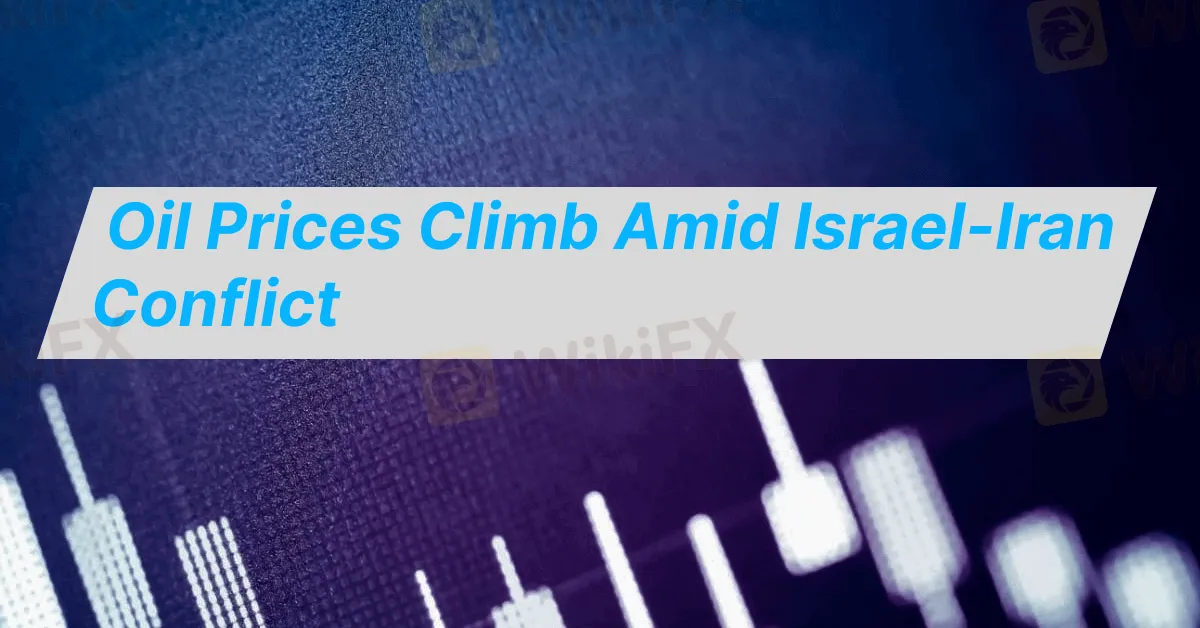简体中文
繁體中文
English
Pусский
日本語
ภาษาไทย
Tiếng Việt
Bahasa Indonesia
Español
हिन्दी
Filippiiniläinen
Français
Deutsch
Português
Türkçe
한국어
العربية
Oil Prices Climb Amid Israel-Iran Conflict
Abstract:According to report, oil prices surged in early Asian trade on Thursday, driven by concerns over potential supply disruptions in the Middle East and rising fuel demand due to Hurricane Milton's impact on Florida.

According to report, oil prices surged in early Asian trade on Thursday, driven by concerns over potential supply disruptions in the Middle East and rising fuel demand due to Hurricane Milton's impact on Florida. Brent crude futures rose by 37 cents, or 0.5%, reaching $76.95 a barrel, while U.S. West Texas Intermediate (WTI) futures increased by 35 cents, also 0.5%, to $73.59 a barrel as of 0034 GMT.
The geopolitical landscape has been tense, particularly with Israel planning a strike on oil-producer Iran. Israeli Defense Minister Yoav Gallant has promised that any Israeli action against Iran would be “lethal, precise, and surprising,” escalating concerns among investors about potential disruptions in oil supply from the region.
Compounding these worries, the U.S. is facing its second major storm of the season. Hurricane Milton made landfall on Florida's west coast, spawning tornadoes and threatening storm surges. This weather event has already spurred a significant increase in gasoline demand within the state, with about a quarter of fuel stations reportedly running out of supplies, further supporting crude prices.
Additionally, U.S. President Joe Biden had a direct and productive 30-minute conversation with Israeli Prime Minister Benjamin Netanyahu regarding Israel's plans concerning Iran, reflecting the high stakes involved in the ongoing tensions.
Despite these immediate concerns, the broader outlook for oil demand remains subdued. The U.S. Energy Information Administration (EIA) recently downgraded its demand forecast for 2025, citing weakening economic activity in both China and North America. Furthermore, EIA data released Wednesday indicated that U.S. crude inventories surged by 5.8 million barrels to 422.7 million barrels last week—significantly higher than analysts' expectations but lower than estimates provided by the American Petroleum Institute.
As the market navigates through geopolitical tensions and natural disasters, the interplay between supply concerns and weakening demand will continue to shape the oil landscape in the coming weeks.

Disclaimer:
The views in this article only represent the author's personal views, and do not constitute investment advice on this platform. This platform does not guarantee the accuracy, completeness and timeliness of the information in the article, and will not be liable for any loss caused by the use of or reliance on the information in the article.
Read more

The Impact of Interest Rate Decisions on the Forex Market
Interest rate changes determine currency attractiveness, influencing capital flows and exchange rate trends. Understanding this mechanism helps investors navigate the forex market effectively.

How a Housewife Lost RM288,235 in a Facebook Investment Scam
A 47-year-old housewife in Malaysia recently fell victim to an online investment scam, losing a substantial sum of RM288,235 after engaging with a fraudulent scheme advertised on Facebook.

Interactive Brokers Launches Forecast Contracts in Canada for Market Predictions
Interactive Brokers introduces Forecast Contracts in Canada, enabling investors to trade on economic, political, and climate outcomes. Manage risk with ease.

Bank Negara Malaysia Flags 12 New Companies for Unauthorised Activity
Bank Negara Malaysia (BNM) has updated its Financial Consumer Alert List (FCA List) by adding 12 more entities, reinforcing its efforts to warn the public against unregulated financial schemes. Check if your broker made the list!
WikiFX Broker
Latest News
The Withdrawal Trap: How Scam Brokers Lure Victims into Paying More
FCA to Investors: Think Twice Before Trusting These Brokers
Trump\s tariffs: How could they affect the UK and your money
Trump gambles it all on global tariffs he\s wanted for decades
TradingView Brings Live Market Charts to Telegram Users with New Mini App
Trump tariffs: How will India navigate a world on the brink of a trade war?
Interactive Brokers Launches Forecast Contracts in Canada for Market Predictions
Authorities Alert: MAS Impersonation Scam Hits Singapore
Stocks fall again as Trump tariff jitters continue
IG Group Acquires Freetrade for £160M to Expand UK Investment Market
Currency Calculator







